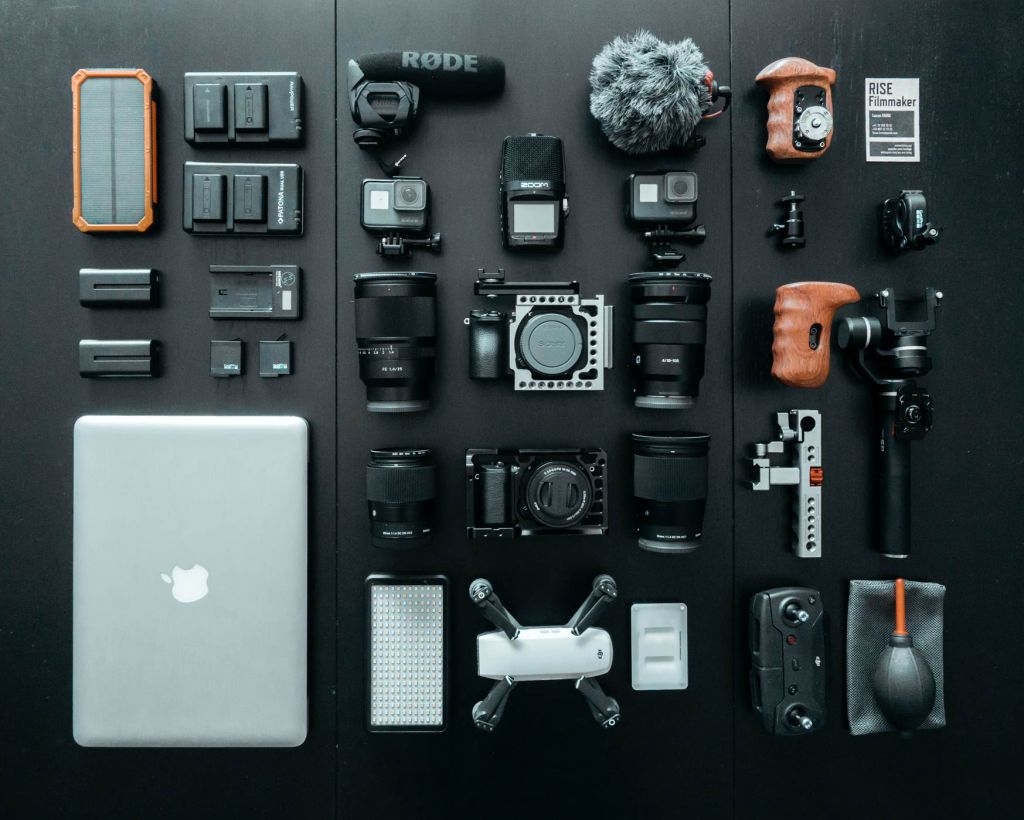How to Become a High-End AV Specialist?
AV specialists bring video to life. To find out whether it’s the right career path for you, here’s all you need to know about the job role and how it pays.
We live in an age where beautifully shot, high-quality videos are everywhere we look. We can enjoy them whenever we want to, whether that be on YouTube, at the movie theater, or during ad breaks. So, it can often be all too easy to forget about the people behind the cameras and microphones who make the magic happen.
You see, sharp video footage and crisp audio don’t fall out of the sky. They are created by professionals with a keen understanding of the latest in audiovisual technology, an eye for detail, and a creative flair.
Audiovisual specialists are in high demand these days. As such, the overall employment of AV specialists is growing at a faster-than-average rate. In fields as wide-ranging as education, entertainment, healthcare, and more, the need for an AV expert to make great shoots happen is on the up. But what does the role itself entail and how can you become one?

Read on to find out more!
What Does an AV Specialist Do?
An AV specialist is the person responsible for the installation, monitoring, and maintenance of audiovisual equipment during a video shoot. This will usually include recording apparatus such as cameras, video monitors, and projector screens as well as audio equipment like microphones and speakers.
To ensure the highest possible standards are met in any given shoot, this job should always be carried out by an AV expert. While people with a passing interest in the field can set up equipment and keep it running, mistakes are far more likely to be made in the wrong hands.
Audiovisual equipment is expensive and often volatile if you don’t know what you’re doing with it. So, it is often expected that AV professionals have a qualification to their name to show that they know their stuff. With the right qualifications, an AV fan can become an AV specialist on a very attractive wage.

What Is an AV Specialist Responsible for in a Project?
Beyond simply managing equipment and making sure it runs at its best during a shoot, AV specialists have a range of other, related responsibilities. These include but are by no means limited to the following:
- Safely transporting audiovisual equipment to shoots.
- Positioning equipment for each shoot, usually working to a project brief.
- Monitoring and troubleshooting recordings as they happen to ensure no problems adversely affect the end product.
- Quality controlling live feeds and shoots while they’re in progress.
- Connecting all relevant equipment to make sure everything works in harmony.
- Storing all equipment, maintaining it to the highest standards, and updating the software whenever necessary.
In some cases, an AV specialist may also be required to repair damaged or malfunctioning audiovisual equipment between shoots. To do so effectively, a person might be expected to have an extra qualification or relevant experience.
Additionally, if you work in a team or you’re attempting to grow a freelance business, you may at some point have to teach others how to operate the equipment you use. So, your knowledge base must be thorough.
How Can Someone Become an AV Specialist?
There are several boxes you’ll have to tick if you’re serious about becoming an AV specialist. For starters, you must be well versed in all things audiovisual, from equipment to software to typical maintenance techniques. And, you can take courses that will help you earn your AV specialist title.
There are also bachelor’s degrees in subjects such as communications and broadcasting that you can do. However, while some companies will only hire candidates who have degrees, others ask only for clear evidence of good knowledge and appropriate experience. Certification from a recognized course provider should be sufficient proof of both of these things.

Some of the most prestigious courses you can take are offered by a handful of internationally renowned companies, including:
AV Specialist Career Path Possibilities
Depending on your level of education, you may need to rise through the ranks to become an AV specialist. Starting out as an assistant technician or a broadcast, sound, and video technician is generally a good idea. This sort of entry-level role will equip you with a broad foundation of knowledge that you can draw on for the rest of your career.
During your time in the field, you may want to specialize in a specific area, for example, system design or installation. Doing so could fast-track you to a higher-paying position. However, if your ultimate goal is to become an AV specialist, it’s important that you don’t lose touch with other, equally important components of the audiovisual field.
AV Specialist Salaries: How Much Do They Make?
On average, an AV specialist makes $58,568 a year. However, wages can be higher depending on the range of responsibilities you take on, the people you manage, and the equipment you’re expected to handle. Typically, earnings start at around $42,500 and max out at almost $79,000 per year.
(Data from 2021)
Clearly, then, it’s a lucrative job for people who have the experience and dedication required to get them there.
Frequently Asked Questions
If you want to become an AV specialist, you probably have plenty of burning questions that you’re dying to get the answers to. To help you out, we’ve rounded up some of the most frequently asked questions to provide you with more information.
What Are These AV Specialists Doing?
AV specialists are responsible for setting up audiovisual equipment on video shoots and monitoring in-progress recordings to ensure no mistakes are made. They are also required to transport, maintain, and update their equipment to keep it operating at its best at all times.
What Career Paths Do AV Specialists Have?
Usually, an AV specialist must work their way up from an entry-level role as an assistant technician. They may go on to specialize in one particular area such as installation or projection, but they should always stay in the know about all types of AV equipment and technology.
What Knowledge Do AV Specialists Have?
It is crucial that an AV specialist knows about a wide range of both audio and visual equipment. They will need to understand how to maintain it, transport it, and update it safely. Additionally, they should know how their equipment works so they can troubleshoot when filming.